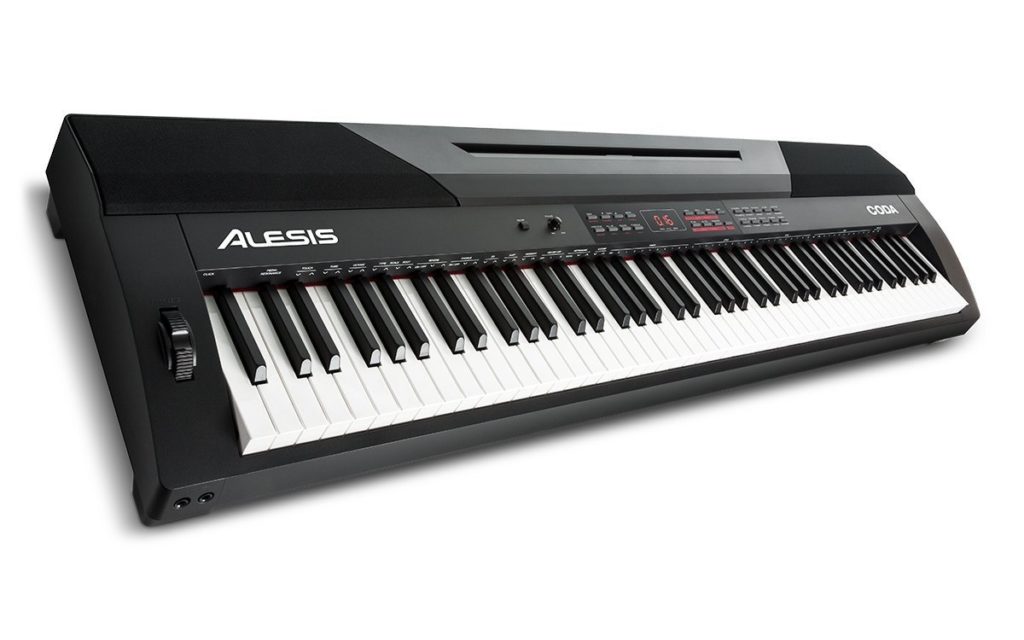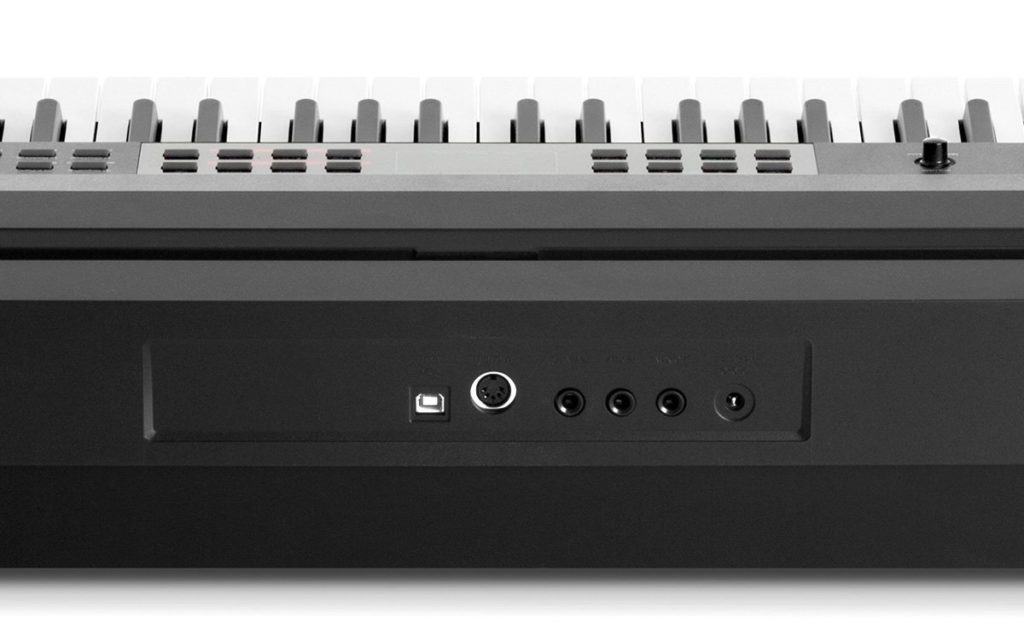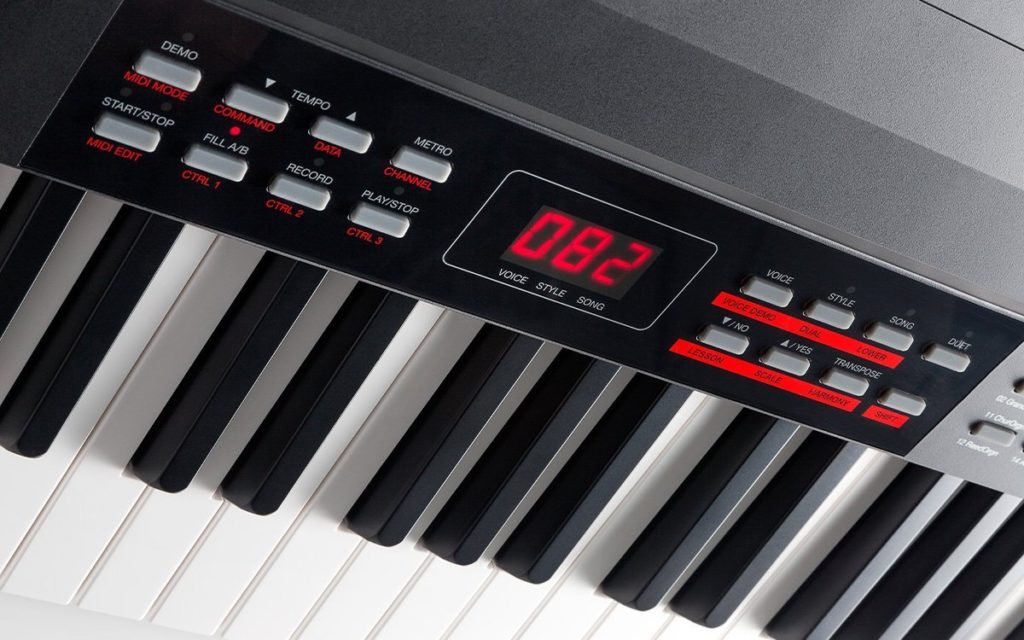
I should state that I purchased Alesis Coda at a lower price. When I initially played it, I became enamored with the instument. It appeared to be very genuine. I found the sound of a piano truly pleasant. It’s somewhat softer than some of the other digital pianos I’ve played, but when I heard the concert record, I utilized the keyboard, and I was stunned by the common sound. Since I play a lot of concerts around the city, I truly value that this instrument measures somewhat more than some other keyboard I’ve been conveying.
Too much reading? Check prices and availability here.

Pros
- Full-size keys, as on a standard piano. Plastic keys have a nice sentiment.
- The keyboard is no more extensive than 88 keys.
- 20 premium piano voices
- The activity is like a fabulous piano. Remember that “like” is not the same as the colossal, but rather the activity has a positive sentiment. For instance, I can play the scales easily, just somewhat rehearsed.
- A considerable measure of settings that you can do, and effectively. Does not require many directions.
- Interesting harmonies and voice layering capacities, but a great deal less adaptable than different keyboards.
- Pretty great inherent voices. The piano voice is naturally quite great and fundamentally the same as a genuine piano.
- Surprisingly great speakers, and it sounds extremely pleasant out of the case with no additional hardware.
- It has some weight to it, but it’s sufficiently simple to sit on a customary shoddy keyboard stand.
- There’s a wheel twisting tone, it’s truly not a necessity for this item classification, but rather it’s decent to have.
- There is a remain (for an extra expense), which incorporates three pedals.

Cons
- Some different keyboards publicize heavier acts in the bass and are lighter in high frequencies, much the same as a genuine pianoforte. This keyboard has a similar mallet activity on all keys. I don’t consider this an issue.
- The speakers are great, but not very loud. If you need it to sound as loud as a genuine piano, you’ll require all the more capable outer speakers.
- There are just 20 voices. As you can see I put this into pros also. Because 20 voices is more then enough for you if you need this to be a piano. However if you require a ton of intriguing sounds, this is not the keyboard for you.

For quite a while, I needed to utilize a keyboard with a mallet, and that suits me in particular. Alesis has made a decent showing with regards to getting star works in a respectably priced bundle.
Alesis Coda is available in two modifications: with hammer action keys and semi-weighted keys for the same price. If you are a classical pianist and looking for real fealings of natural keys under your fingers, or you are a student just starting to learn piano, then you should buy the hammer action modification – this is called Alesis Coda Pro. And if you are not a professional pianist and don’t want to strain your fingers playing on a weighty keyboard, then Alesis Coda with semi-weighted keys is your choice. I think that this piano will be good for you anyway, just give it a try.
You can also choose whether to buy a bundle with stand or just a piano.
Alesis Coda Main Specs and Features
- Number of sounds: 20
- Built-in metronome
- Lesson mode
- Styles: 50
- Songs: 60
- Dimensions (WxDxH): 59″x19″x9″
- Dimensions (cm): 151x48x23
- Weight:
– Coda: 24 lbs/10.7 kg
– Coda Pro: 27 lbs/12 kg
- Sustain pedal and power supply included
- Connections:
– 2×1/4” headphone output
– 1/4″ AUX output
– USB-MIDI output
– 1/4″ TRS input
– 1/4” sustain pedal input
Alesis Coda Pro Video Overview
Alesis Coda Customer Reviews
